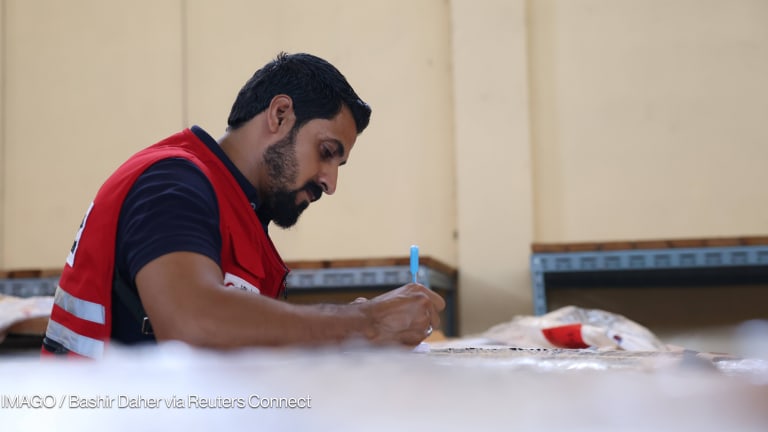
Scores perished and widespread damage was reported after the devastating floods that this month hit North Korea, historically reluctant to receive international assistance even in the most dire of emergencies.
Two relief groups — the International Federation of Red Cross and Red Crescent Societies and World Vision — are leading outside efforts to deliver aid to affected communities in certain rural areas where vital farmland has been lost due to the seasonal rains.
But how are they working with a government that has discouraged international assistance in the past and almost a decade ago waited until the eleventh hour to ask for help when most of the population was starving in a national famine?
This time, however, Devex learned that the situation has somewhat improved. Pamela Meston, IFRC disaster management delegate in North Korea said the government has in fact been working closely with the local Red Cross Society for disaster response and coordination mechanisms at the local and national levels to prepare vulnerable populations for the monsoon.
Meston did not report any problems with coordinating with the North Korean government, a rare statement coming from any foreign aid group operating in the country.
Tens of thousands still at risk
The latest IFRC status update noted that “in many communities, public institutions like kindergartens and children nurseries have been partly or completely damaged by heavy rains and floods, while a number of old and low-standard houses have collapsed.” It also reported that the over 49,000 displaced persons have inadequate shelter — for instance, lack of beddings and essential household utilities — pose a big health risk.
“Many families have been evacuated to temporary shelters in public buildings and self-made tents, others have sought shelter with neighbors,” said Meston.
The local Red Cross chapter has deployed over 3,300 volunteers on the ground to help victims get access to drinking water and emergency supplies, and assist in evacuation and first-aid efforts.
Meston explained the main challenge met by the IFRC response teams was damaged infrastructure blocking access to some of the affected areas and causing delays in communication. This could change in the following days when the government completes the repair of wrecked roads, she added.
Long-term aid
It is still unclear how assistance for flood victims will be prioritized while the North Korean government continues to assess and tally the data on the impact of the disaster. IFRC will be closely monitoring the situation as further rains are expected this week, and will supply more relief if necessary.
“Food stocks have been washed away and there will be a longer-term impact on food security for the affected population as crops, particularly for rice and maize, have been damaged. It is likely that [more] assistance will be needed to support the longer-term livelihood recovery of the flood-affected families,” said Meston.
World Vision, which has received a request for assistance from its partners in North Korea, is carrying out its own assessment to determine where support should go.
“Based on initial reports, we believe the most urgently needed items will be food,” Jusung Lee, senior country program officer, told Devex.
Read more development aid news online, and subscribe to The Development Newswire to receive top international development headlines from the world’s leading donors, news sources and opinion leaders — emailed to you FREE every business day.




